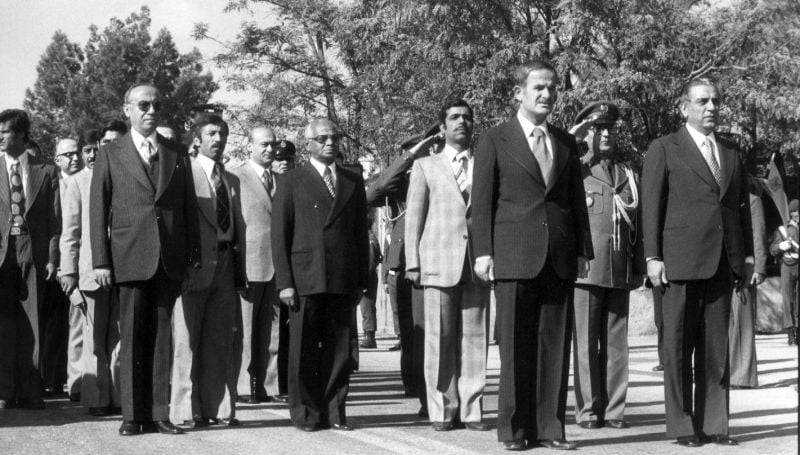
President Elias Sarkis with his Syrian counterpart Hafez al-Assad. (Credit: OLJ archives)
In political circles, Lebanon is often referred to as a country ever permeable to external influence, where embassies and consulates hold sway. While this clichéd assertion may allow local stakeholders to shirk their responsibilities, it also reflects the ascendancy of external powers in major Lebanese elections, especially those for president.
Since 1943, no president can claim to have been elected without a regional and international green light. Over the decades, several foreign powers have had a say in choosing the Lebanese head of state, be it the United Kingdom, France, Syria, Iran, Egypt or the United States.
Once elected, a Lebanese president’s mandate may also depend on regional factors. This story is one of power games, diplomatic interference and precarious geopolitical balancing acts, which L’Orient-Le Jour aims to tell in a 13-part series.
This seventh installment of our series tells how Elias Sarkis’ term of office witnessed the sustained entry of Assad’s Syria in Lebanon.
L'Orient-Le Jour / By Mounir RABIH, 13 March 2023 10:03

President Elias Sarkis with his Syrian counterpart Hafez al-Assad. (Credit: OLJ archives)